Description
ABSTRACT
An Examination of Unfair Labour Practices Against Workers in Nigeria and Some Selected Jurisdictions
Adeniyi Olatunbosun* and Kingsley Osinachi N Onu**
Nigeria and some selected jurisdictions like South Africa, the UK, and the United States. The paper contends that new forms of employment relations and the prevalence of unfair labour practices have been exacerbated by the growing incidence of unemployment in Nigeria. It recommends proactive roles to be played by critical stakeholders in curbing such unfair labour practices.
Keywords: Unfair Labour Practices, Workers, Unemployment, Employment Relations, Nigeria.
INTRODUCTION
Workers all over the world are entitled to certain rights as provided under the statutes of various countries. Examples of such rights are the right to form trade unions, the right to strike, the right to leave and bonuses, the right to be provided with a written contract, the right against discrimination and harassment, the right to bargain collectively and a host of other rights. However, certain labour practices of employers contravene these rights and are regarded as unfair. Globalisation and trade liberalisation plays a major role in the prevalence of unfair labour practices. Without an explanation of the word ‘unfair’, the entire definition of an unfair labour practice is meaningless. The Oxford Advanced Learner’s Dictionary, 7th edition, defines ‘unfair’ as ‘not right or fair according to a set of rules or principles; not treating people equally’.
There seems to be no direct statutory provision covering or defining unfair labour practice in Nigeria. However, scholars have attempted to define the concept. Asia defined unfair labour practice to mean ‘inequitable actions by the employer that do not conform to both domestic and international best practices and labour standards’.1 In another vein, Atilola is of the view that ‘the term, unfair labour practice, has generally been defined to mean practices that do not conform with best practice in labour circles as may be enjoined by local or international experience’.2 These practices impede on an employee’s welfare and tend to expose such employee to adverse conditions and irreparable loss.3
* LL.B (HONS), BL, LL.M, MPhil, PhD. Professor of Public Law and Dean, Faculty of Law, University of Ibadan, Nigeria. Email address: tu*********@***oo.com
** LL.B (HONS) (EBSU), BL, LL.M (Ibadan), PNM, NIM. Lecturer, Faculty of Law, Adeleke University, Ede, Osun State, Nigeria and PhD Candidate at the University of Ibadan, Nigeria. E-mail: ki*************@***il.com; ki**********@*******************du.ng
- See Mix & Blake v NUFBTE [2004] 1 NLLR (part 2) 247, cited in EE Asia, ‘Covid-19: Time to Address Unfair Labour Practices in Nigeria’s Banking Industry’ accessed 3 August 2020.
- B Atilola, Recent Developments in Nigerian Labour and Employment Law (Hybrid Consult Ltd 2017) 4.
- David Eyongndi, ‘Constructive Dismissal as an Albatross to Security of Employment in Nigeria: A Review of the National Industrial Court Decision in Modilim v Uba‘ (Manuscript, 2020) 9.

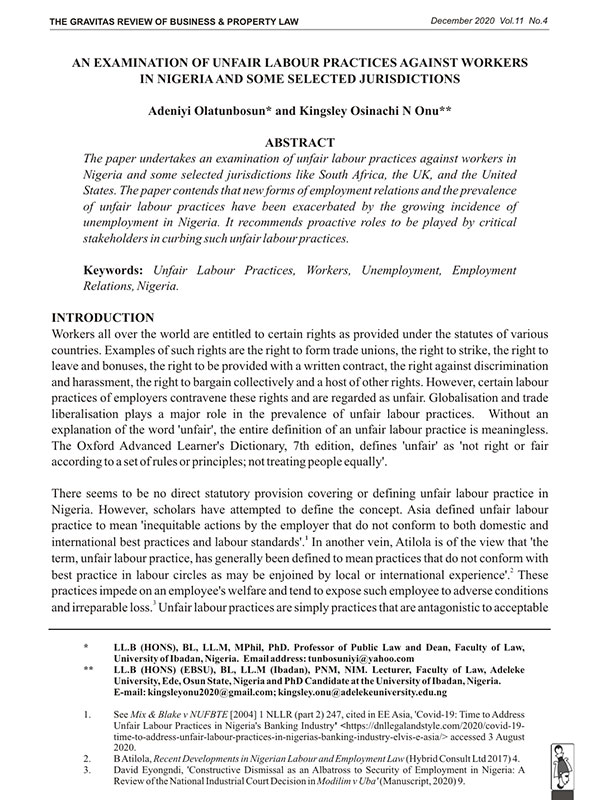
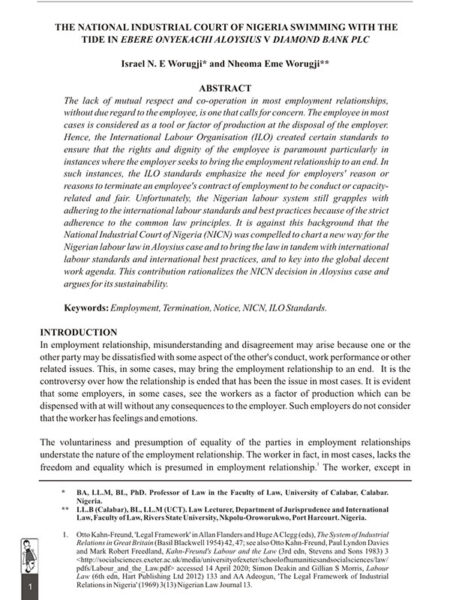
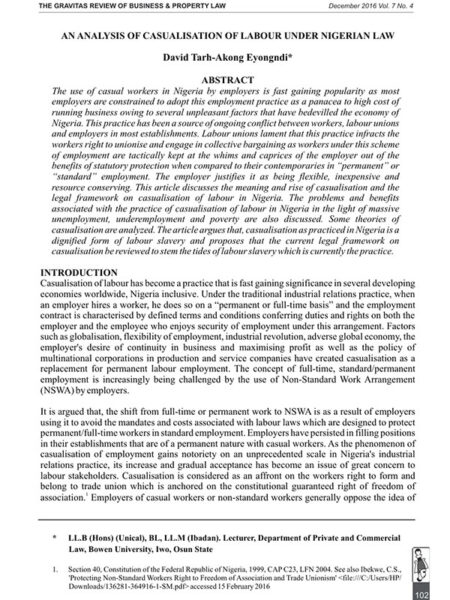
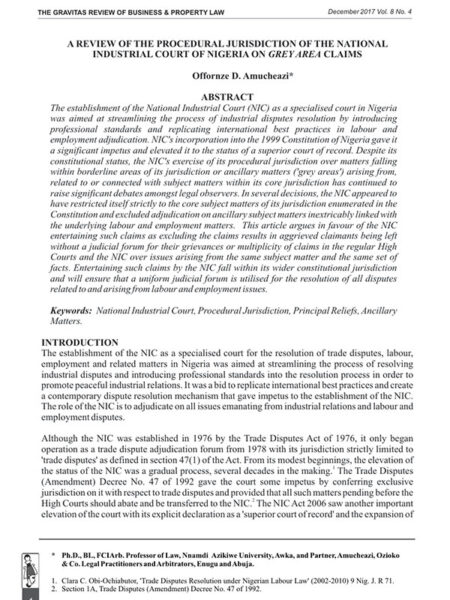
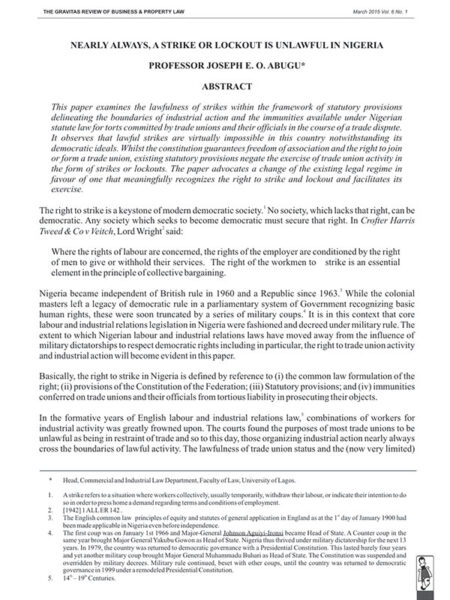


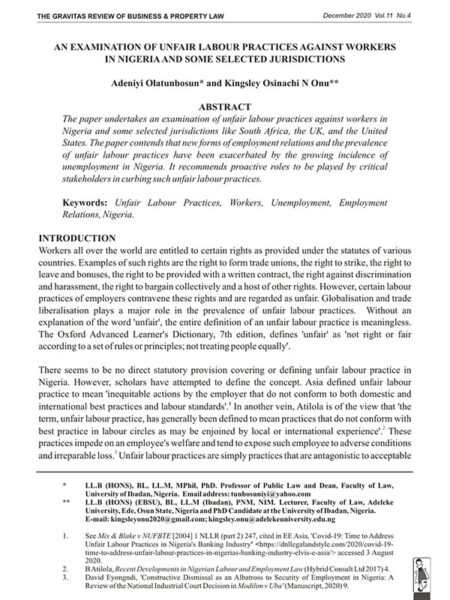
Reviews
There are no reviews yet.